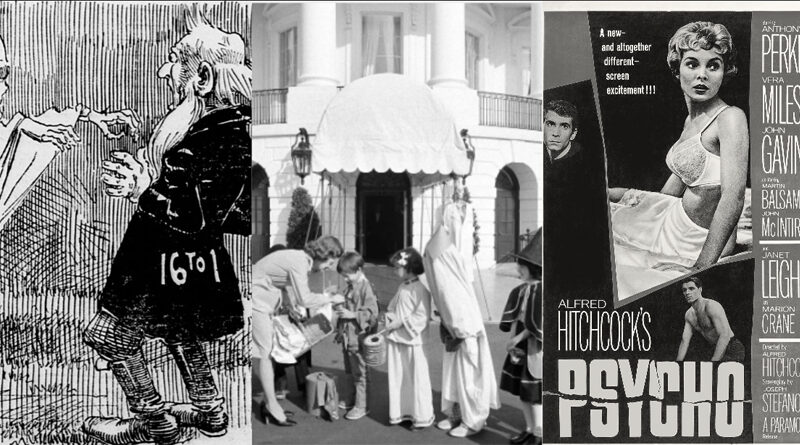Charlotte Professor Heather Freeman Hosts New PRX Podcast
Heather Freeman, professor of digital media in the Department of Art and Art History, has been fascinated by Halloween’s history, cultural actions and magical and spiritual practices for years. She is the host of the new PRX podcast series Magic in the United States, available on Apple Podcasts, Spotify and more.
“The origins of Halloween itself are messy and murky,” explained Freeman. “The internet claims that it’s an ancient Celtic holiday, but we don’t know for certain because the ancient Celts didn’t have written records. All we know is that they did have an end-of-summer and beginning-of-winter festival called ‘Samhain.’”
Samhain, pronounced ‘sow-win,’ is the farthest back Halloween can be dated, but in terms of America’s introduction, it has a more concrete beginning. According to Freeman, All Hallows Day was an early Christian holiday and evolved into a more familiar Halloween in Gaelic regions, particularly Ireland. While some incorrectly believe Halloween has Satanic origins, this emerged from the “Satanic Panic” of the 1970s. Irish immigrants brought their own unique celebrations of Halloween with them to the United States during their immigration in the early 1800s.
“Halloween comes from the phrase ‘All Hallows Eve,’ which was associated with the remembrance of Christian martyrs and remembrance of Christian death,” said Freeman. “There was also this very, very sincere fear of hell. You’d pray for them and hope that they ended up in heaven and not hell or purgatory. There’s also something kind of spooky about death for many Americans today.”
Costumes came later but have a rich history nonetheless. In Ireland and England, institutionalized begging around certain holidays was a common practice where people would go door to door and exchange the singing of a song for food or drink. People called them mummers, primarily young boys at the time. When the Irish came to the United States, they continued this tradition.
Now, it’s transformed into kids and adults dressing up as their favorite book or movie character and walking door to door with friends, collecting their favorite treats. Today, many modern Pagans, also called neo-pagans, celebrate Samhain/Halloween as one of their most essential holidays or sabbats. It’s a festival to remember and share fellowship with their beloved dead and ancestors.
“Have fun on Halloween and do what you’ve always done,” said Freeman. “Remember that culture, religion, language, everything humans create, always evolves and changes.”

